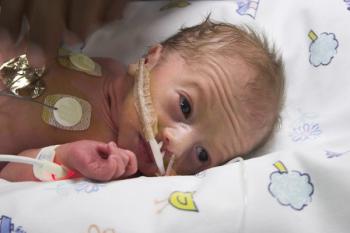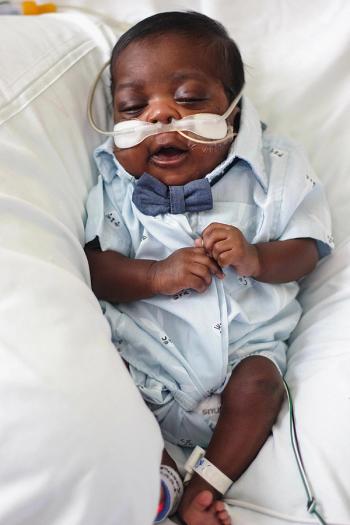
Mothers and Fathers With Psychiatric Histories Face Higher Risk of Preterm Births
A huge study in Sweden found that the risk was greatest when both parents had been diagnosed with any of a large range of mental illnesses.
Babies are more likely to be born preterm when the father, mother or both — in that order — had a history of mental illness, according to what was described as the first large, population-based study to comprehensively examine the issue for both parents. Early-term births (37 to 38 weeks) were more likely as well.
About 10.5% of babies in the United States were born preterm in 2021 (Sweden’s rate was much lower), which makes them more vulnerable to a range of
And more than 1 in 5 American adults live with a psychiatric disorder, with 1 in 25 diagnosed with a serious mental illness like schizophrenia, bipolar disorder or major depression.
The
Theirs is the first major study to measure the effect that the psychiatric histories of fathers — and of both parents combined — have on gestational age at birth, wrote first author
Previous research demonstrated that mothers with psychiatric histories were more likely to give birth preterm (before 37 weeks), although those studies were smaller and did not look at as many psychiatric disorders or the full gestational age distribution.
The takeaway finding of Yin and colleagues: Compared with babies born to couples without psychiatric histories, the relative risk of preterm birth was 12% higher when fathers had a psychiatric diagnosis in the records, 31% higher when mothers had been diagnosed with a mental illness and 52% higher when both parents had.
The results were fairly consistent across 13 psychiatric categories and diagnoses, including substance abuse. Stress-related disorders were associated with the highest risks of preterm birth (23% higher for fathers, 47% for mothers and 90% when both parents were affected).
The earlier the gestational age, the higher the risk. Relative risk also increased for both parents, in a dose-response relationship, with an increasing number of co-occurring psychiatric conditions. (Psychiatric diagnoses often come in groups.)
Interestingly, adjustments for parental age and socioeconomic status and for maternal BMI and smoking had little effect on mothers’ relative risk of premature delivery but greatly reduced that of fathers’, although it remained statistically significant. The authors noted that this was in line with findings of a recent meta-analysis that unemployment and financial strain are important risk factors for paternal depression.
They concluded by raising a question: Given their findings that relative risk of preterm birth was significantly worse when both parents have histories of mental illness — it was nearly double — when both had a stress-related disorder — is additional social support for these families needed?
“Linking psychological stressors with increased risk of preterm birth, factors such as social and environmental disadvantages are likely to cluster and psychological support to counteract such stress is more likely to be adversely affected in families were both parents have mental conditions. This raises the concern about preventive efforts in antenatal care and opens possibilities for clinical intervention, e.g., whether additional social support to these families may be needed,” they wrote.
Newsletter
Get the latest industry news, event updates, and more from Managed healthcare Executive.























